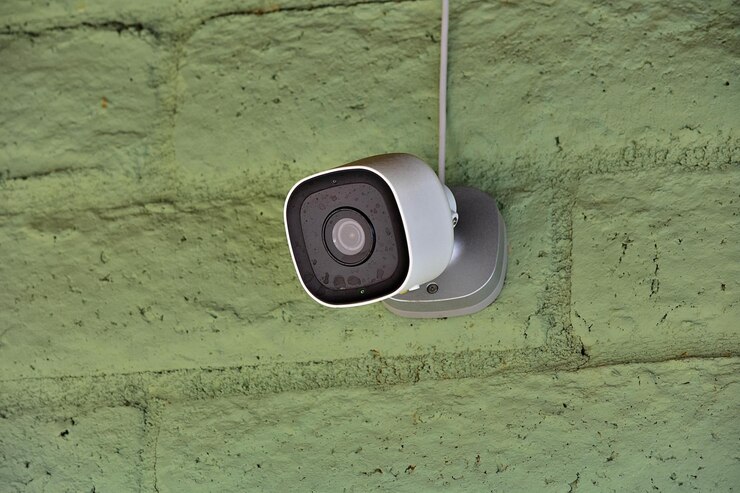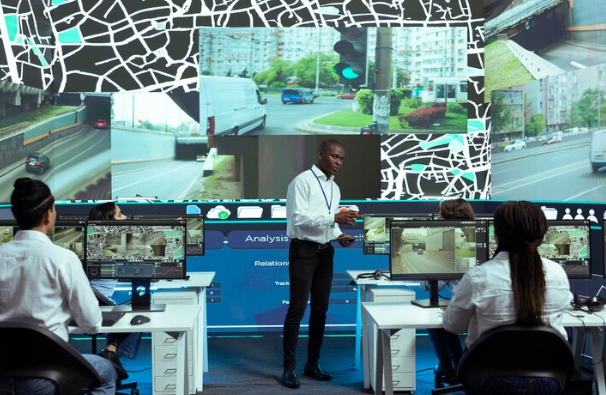The Importance Of Commercial Video Surveillance Houston
Due to rapid technological advancements and increasing security threats, commercial video surveillance in Houston has emerged as a critical component for businesses across various sectors. Whether in retail, banking, healthcare, or corporate environments, the importance of video surveillance systems extends beyond mere theft prevention. This article delves into the multifaceted benefits of commercial video surveillance in Houston, examining its role in enhancing security, improving operational efficiency, and fostering a sense of safety within workplaces.

Understanding Commercial Video Surveillance In Houston
Commercial video surveillance refers to the use of video cameras and recording devices to monitor activities in and around a business premises. These systems can be connected to a central server or cloud-based platform, allowing for real-time monitoring and recording of footage. With advancements in technology, modern surveillance systems offer features such as high-definition video, night vision, motion detection, and remote access, making them more effective than ever.

1. Enhancing Security
The primary function of video surveillance is to enhance security. Businesses face various security challenges, including theft, vandalism, and unauthorized access. According to the FBI, businesses experience significant losses due to property crimes each year. The presence of video surveillance acts as a deterrent; potential criminals are less likely to target a business with visible cameras.
In addition to deterrence, video surveillance provides valuable evidence in the event of a crime. Recorded footage can be crucial for investigations, helping law enforcement identify suspects and gather evidence for prosecution. Furthermore, many insurance companies require businesses to have surveillance systems in place to qualify for coverage, highlighting its importance in risk management.
2. Improving Employee Safety
Workplace safety is a paramount concern for employers. Video surveillance can play a vital role in monitoring safety compliance and identifying potential hazards. For instance, in industrial settings, cameras can ensure that safety protocols are being followed, helping to prevent accidents and injuries. It not only protects employees but also reduces the business’s liability.
In addition, surveillance systems can help address issues such as workplace harassment or bullying. Having cameras in place can create a safer environment, as employees are more likely to report inappropriate behavior knowing that it is being recorded. It fosters a culture of accountability and respect within the workplace.
3. Streamlining Operations
Commercial video surveillance can also improve operational efficiency. By monitoring employee productivity and workflow, businesses can identify areas for improvement. For example, retail stores can analyze customer traffic patterns to optimize staff schedules and product placement, leading to enhanced customer service and increased sales.
Additionally, surveillance footage can be used for training purposes. New employees can learn best practices by reviewing recorded sessions of experienced staff. It not only accelerates the training process but also ensures consistency in service delivery.
4. Remote Monitoring Capabilities
Modern video surveillance systems offer remote access, allowing business owners and managers to monitor their premises from anywhere in the world. This capability is especially important for multi-location businesses or those that operate outside of regular hours. With mobile apps and online portals, users can view live feeds and receive alerts for any unusual activities, providing peace of mind even when they are not physically present.
Remote monitoring also enables faster response times to incidents. For example, if a motion sensor is triggered after hours, a manager can instantly review the footage and determine whether to contact law enforcement or handle the situation themselves.
5. Compliance and Legal Protection
Many industries are subject to regulations that mandate specific security measures, including video surveillance. For example, financial institutions must adhere to the Gramm-Leach-Bliley Act (GLBA), which requires them to implement safeguards to protect customer information. Similarly, healthcare facilities must comply with HIPAA regulations to ensure the privacy and security of patient data.
Having a video surveillance system in place can demonstrate a commitment to compliance, potentially reducing legal liability in the event of a breach. Furthermore, recorded footage can serve as evidence to protect businesses against false claims or disputes, providing a legal safeguard in various scenarios.
6. Customer Confidence and Satisfaction
In today’s competitive market, customer confidence is paramount. Consumers want to feel safe when shopping, visiting a bank, or entering a corporate office. The presence of video surveillance can reassure customers that their safety is a priority. It can enhance brand reputation and customer loyalty, ultimately leading to increased sales and business growth.
Moreover, businesses can utilize surveillance footage to improve customer experiences. Analyzing how customers interact with products can help businesses optimize store layouts and enhance product displays, contributing to a more satisfying shopping experience.
7. Cost-effectiveness and Technological Advancements
While the initial investment in video surveillance can seem daunting, the long-term benefits often outweigh the costs. With technological advancements, the price of high-quality surveillance systems has significantly decreased. Cloud-based solutions reduce the need for on-site storage and maintenance, making video surveillance more accessible for businesses of all sizes.
Additionally, the potential savings from reduced theft, lower insurance premiums, and improved operational efficiency can provide a strong return on investment. For many businesses, the implementation of a surveillance system is a proactive measure that pays dividends in various forms.
8. Future Trends in Video Surveillance
The future of commercial video surveillance is promising, with ongoing advancements in artificial intelligence (AI) and machine learning. These technologies enable systems to analyze footage in real time, identifying suspicious behavior or potential threats without the need for constant human monitoring.
Moreover, the integration of video surveillance with other security measures, such as access control systems and alarms, will create a more comprehensive security solution. This holistic approach not only enhances safety but also streamlines security management for businesses.
Conclusion
Where security threats are ever-present and businesses face increasing scrutiny, commercial video surveillance in Houston is no longer a luxury but a necessity. From enhancing security and improving employee safety to streamlining operations and fostering customer confidence, the benefits of surveillance systems are extensive. As technology continues to evolve, businesses that invest in video surveillance will be better equipped to protect their assets, comply with regulations, and adapt to changing security needs. Ultimately, a robust video surveillance system is an investment in the safety, security, and success of any business in today’s fast-paced environment.
